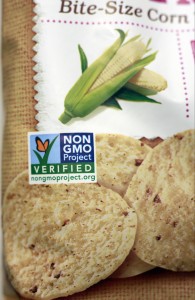Three times as much agribusiness money, on average, for House members voting to bar GMO labeling
 Thursday’s House passage of a bill that would keep states from requiring genetically modified foods to be labeled was a big — and not at all close — win for agribusiness and food and beverage interests.
Thursday’s House passage of a bill that would keep states from requiring genetically modified foods to be labeled was a big — and not at all close — win for agribusiness and food and beverage interests.
The Safe and Accurate Food Labeling Act of 2015, known to its critics as the DARK (Deny Americans the Right to Know) Act, sailed through by a vote of 275 to 150. While the bulk of its support came from the GOP and most of its opponents hailed from Democratic districts, the vote didn’t break cleanly along party lines. Among its 107 sponsors were 92 Republicans and 15 Democrats.
But a more telling predictor of where lawmakers came down was the amount of support they’d received from interests with a stake in the legislation.
For example, the campaigns of Reps. Collin Peterson (D-Minn.), Frank Lucas (R-Okla.), Rodney Davis (R-Ill.), Mike Conaway (R-Texas) and Kurt Schrader (D-Ore.), all cosponsors of the legislation (most of whom also sit on the House Agriculture Committee), received six-figure dollar amounts from providers of agricultural services and products — one segment of the agribusiness sector — during the 2014 election cycle. That put them high among the top 20 recipients of funds from the industry.
Cosponsors such as Reps. David Valadao (R-Calif.), Steve Fincher (R-Tenn.), Devin Nunes (R-Calif.) and Kevin Cramer (R-N.D.) aren’t on the Agriculture Committee, but nevertheless pulled in six-figure dollar amounts from the crop production and basic processing industry (another part of agribusiness; think Cargill Inc. and the National Corn Growers Association) during the midterm cycle — landing them among the 20 members who received the most from that industry.
Reps. Mike Pompeo (R-Kan.) and G.K. Butterfield (D-N.C.), two original sponsors of the legislation, were the top two current House members receiving the most money from the Grocery Manufacturers Association in 2014. The grocery manufacturers — who have spent $4.1 million lobbying on all issues so far this year, almost as much as they spent in all of 2014 — have lobbied on the bill more than any other organization, mentioning the measure on 14 lobbying reports this year.
After the Grocery Manufacturers Association, PepsiCo Inc ($2.5 million in overall lobbying this year) and Monsanto Co ($2.6 million) have mentioned the bill most frequently.
All told, the 230 Republicans and 45 Democrats who voted to pass the bill collectively received over $29.9 million from the agribusiness sector and food and beverage industry during the 2014 cycle, or about $108,900 per member. That’s nearly three times as much as the average $38,977 per lawmaker drawn by the 138 Democrats and 12 Republicans voting nay. Their cumulative contributions from the interests came to $5.8 million.
For all the election cycles since 1990, more than $115.1 million has gone to those who voted for the legislation this week (with an average of $418,644 per member), compared to almost $25.8 million for those who voted against it ($171,785 per member).
With numbers like those, anti-labeling advocates may be giving a whole new meaning to the term “cash crop.”
Doug Weber contributed research to this post.
by Alex Lazar on July 24, 2015
Opensecrets.org
